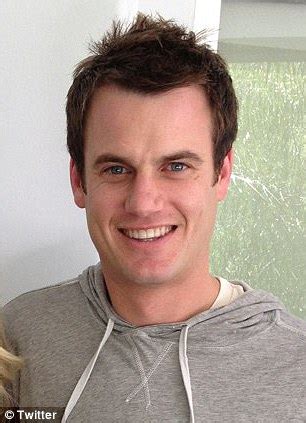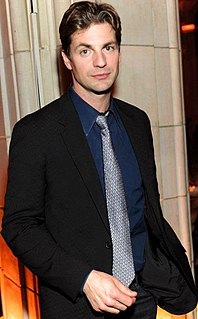A Quote by Richard Whately
It is a good plan, with a young person of a character to be much affected by ludicrous and absurd representations, to show him plainly by examples that there is nothing which may not be thus represented. He will hardly need to be told that everything is not a mere joke.
Related Quotes
Every one may know that to will and not to do, when there is opportunity, is in reality not to will; and that to love what is good and not to do it, when it is possible, is in reality not to love it. Will, which stops short of action, and love, which does not do the good that is loved, is a mere thought separate from will and love, which vanishes and comes to nothing.
That we need only to recognize GOD intimately present with us, to address ourselves to Him every moment, that we may beg His assistance for knowing His will in things doubtful, and for rightly performing those which we plainly see He requires of us, offering them to Him before we do them, and giving Him thanks when we have done.
The State which would provide everything, absorbing everything into itself, would ultimately become a mere bureaucracy incapable of guaranteeing the very thing which the suffering person—every person—needs: namely, loving personal concern. We do not need a State which regulates and controls everything, but a State which, in accordance with the principle of subsidiarity, generously acknowledges and supports initiatives arising from the different social forces and combines spontaneity with closeness to those in need. The Church is one of those living forces.
Though business conditions may change, corporations and securities may change, and financial institutions and regulations may change, human nature remains the same. Thus the important and difficult part of sound investment, which hinges upon the investor's own temperament and attitude, is not much affected by the passing years.
I dont want to sound gloomy, but, at some point of your lives, every one of you will notice that you have in your life one person, one friend whom you love and care for very much. That person is so close to you that you are able to share some things only with him. For example, you can call that friend, and from the very first maniacal laugh or some other joke you will know who is at the other end of that line. We used to do that with him so often. And then when that person is gone, there will be nothing like that in your life ever again.
Our collection of men is very antique, they stand in my list thus: A man of sense, a little rusty, a beau a good deal the worse for wearing, a coxcomb extremely shattered, a pretty gentleman very insipid, a baronet very solemn, a squire very fat, a fop much affected, a barrister learned in Coke upon Littleton, but who knows nothing of `long ways for marry as will', an heir apparent, very awkward; which of these will cast a favourable eye upon me I don't know.
Teach your scholar to observe the phenomena of nature; you will soon rouse his curiosity, but if you would have it grow, do not be in too great a hurry to satisfy this curiosity. Put the problems before him and let him solve them himself. Let him know nothing because you have told him, but because he has learnt it for himself. Let him not be taught science, let him discover it. If ever you substitute authority for reason he will cease to reason; he will be a mere plaything of other people's thoughts.
Brian is an archetypal character, a bit like Don Juan, which is how I play him. He's a blast to play. He believes unapologetically in his freedom. He holds nothing back. Something I'm learning is, you can't hate the character you play. If I think my character is an asshole, that's all that will come across. He is drawn in an extreme way, but that doesn't mean he's not a person.
I like to imagine a person's psyche to be like a boardinghouse full of characters. The ones who show up regularly and who habitually follow the house rules may not have met other long-term residents who stay behind closed doors, or who only appear at night. An adequate theory of character must make room for character actors, for the stuntmen and animal handlers, for all the figures who play bit parts and produce unexpected acts. They often make the show fateful, or tragic, or farcically absurd.






































